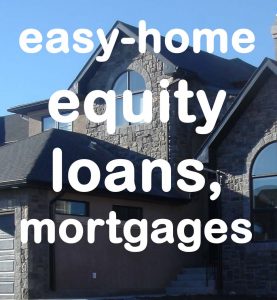Private Lenders vs. Banks!
What’s The Difference?
Private lenders are more flexible than banks, but they are more expensive.
Individuals with poor credit scores can therefore get loans from a private lender, but their interest rates and fees will be higher.
Despite this, banks have strict approval procedures and take longer to approve loans. Due to the flexible processes of private lenders, they approve and administer loans quickly.
If your situation warrants a bank loan rather than a private loan, you may need to obtain one. However, be aware that the requirements vary.
A private lender may be the best option for you if you require an urgent amount of funding to purchase a home, renovate a home, or meet any other need.
If you don’t need a loan right away, you may opt to stick with a traditional lender for a low interest rate and fees.
Is Private Lending Right For You?
Everyone has access to private lenders, but not everyone can obtain a loan from a private lender.
You must meet the following requirements to be eligible for a private loan:
- You must be at least 18 years old
- Maintain a good debt-to-income ratio

private lender mortgages
- Ensure that you have a steady income
There are, however, different requirements for private lenders. It is therefore advisable to compare private lenders to find the one with the most favorable terms and conditions.
Fees charged by private lenders in Canada.
Because private lenders are not regulated in Canada, their fees can be set at their discretion. There are varying fees charged by private lenders compared to traditional lenders. This results in a competitive fee structure for private lenders. Moreover, some private lenders charge high interest rates with no fees, while others charge low interest rates with low fees but with higher annual rates.
Before applying for a private loan, you should consider the annual rate and the interest rate charged by the lender. There are brokerage fees, private lending fees, and legal and appraisal fees associated with private lenders. In addition, some private lenders charge set-up and administration fees.
You can also determine your overall fees based on your location and property type.
How Do You Know When To Choose A Private Loan?
The choice between a private loan and a traditional loan may be difficult to make. In light of private lenders’ ease of access and flexibility in comparison with conventional lenders’ lengthy procedures and strict guidelines, this is understandable. If you want to make a cost-effective decision, you shouldn’t take a private loan in Canada right away. Private loans only make sense, based on my experience and what I’ve seen work for others:
This is a pressing issue
Private lenders are able to offer quick loans because they are not regulated by any organization. Within a few minutes, you can fill out your application, and you’ll have your loan deposited within a week.
Credit problems
Individuals with low credit scores can obtain loans from private lenders, unlike traditional lenders. This means that bad credit scores no longer limit you from reaching your dreams.
There Is No Alternative
You might turn to a private lender if you have been rejected by traditional lenders. Private lenders are willing to offer loans regardless of your credit score or financial situation, regardless of the high interest rate and fees.

